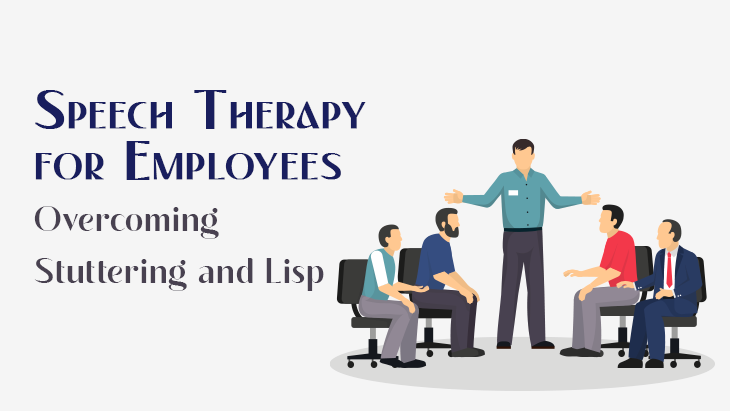Effective communication is the heart of success at work. When Optisuch Care you are working on presentations, attending meetings, or just making small talk with a colleague, then clear and assured speech is involved. However, employees who face speech disorders in the form of stammering/stuttering or lisp encounter difficulties in handling workplace interactions, which creates an atmosphere of tension, lowers confidence, and further affects career progress. Fortunately, speech therapy has shown to be the most reliable remedy to these factors and ensures employee communication without difficulty.
This article will delve deeper into why employees need speech therapy, how to overcome stammering and lisping, and suggestions on getting underway on the route to clear speaking.
Understanding Stammering and Lisping
What is stammering?
Stammering, also known as stuttering, is a speech disorder that manifests through disruptions in the flow of speech. Such disruptions can include Repetitions of sounds, syllables, or words, Prolonged sounds, Involuntary pauses or blocks where no sound is produced despite effort to speak. In high-pressure situations, such as public speaking or important meetings, stammering increases. This makes it hard for the individual to speak, leading to opportunities that should have been used for career advancement being missed.
What is Lisping?
A lisp is a speech disorder that causes the individual to mispronounce some consonants, particularly the "s" and "z" sounds. A person with a lisp might pronounce these sounds by placing the tongue too far forward in the mouth, making them sound like "th." For instance, "sun" would sound like "thun."
Although a lisp is not usually a problem for communication like a stutter, it may influence how other people view the speaker as professional or confident.
How Speech Therapy Helps
Speech therapy is a specialized intervention aimed at improving speech patterns and communication skills. It's not just for children many adults, including employees, benefit significantly from speech therapy. Here's how it helps address stammering and lisping:
1. Reduces Stammering Through Fluency Techniques
Speech therapists use evidence-based fluency techniques to help individuals gain better control over their speech. These include:
Slow speech practice: Encouraging slower speech can help reduce stammering episodes.
Breathing exercises: Smooth speech needs proper control over breathing. Techniques are taught by therapists to overcome anxiety and also enhance speech fluency.
Pausing techniques: Natural pausing during speech will provide time to gather thoughts for the speaker to minimize stammering.
2. Overcomes Lisping with Proper Articulation
Lisping correction through speech therapy involves proper positioning of the tongue. Some techniques are as follows:
Articulation exercises: Articulation exercises are aimed at helping one to correctly articulate sounds with better tongue placement.
Mirror practice: Using a mirror during practice sessions helps the individual observe and adjust his or her tongue movements.
Auditory feedback: Therapists may use recordings to help individuals hear the difference between correct and incorrect pronunciations.
3. Builds Confidence and Relieves Anxiety
One of the important advantages of speech therapy is its confidence-boosting effect. The former fear of public speaking or even presentation before other employees in the meeting becomes far less with proper therapy. After all, there is a good opportunity for career progress with enhanced professionalism.
4. Improves Skills in Non-verbal Communication
The speech therapist will work to enhance other skills in non-verbal communication: eye contact, facial expression, and body language. This way, workers would have better performance at making the right impressions for interactions with fellow employees.
Advantages of Speech Therapy in Workers
Improved Communication: Good speaking and enunciation mean a good articulation of one's thoughts in words that enhance an employee's collaboration and exchange with others. Overcoming speech disorders can significantly enhance an employee's self-esteem, making them more willing to take on leadership roles and public speaking opportunities.
Better Career Opportunities: Employees with excellent communication skills are often considered for promotions and high-visibility projects. Speech therapy can help unlock these career opportunities.
Better Mental Well-Being: Speech disorders can cause anxiety and social withdrawal. Speech therapy helps reduce these negative emotions, contributing to overall mental well-being.
Tips for Employees Considering Speech Therapy
Acknowledge the Need: Recognizing that a speech issue is affecting your professional life is the first step toward improvement. There’s no shame in seeking help many successful professionals have benefited from speech therapy.
Choose a Qualified Therapist: Look for a licensed speech therapist with experience in treating adults. Some therapists specialize in workplace communication, making them particularly suited to help employees.
Practice Regularly: Speech therapy is both in-office and at home. Allocate time every day to practice the techniques and exercises your therapist has recommended for you.
Establish Realistic Goals: Speech improvement does not happen overnight. Set achievable milestones, such as speaking confidently in small meetings before tackling larger presentations.
Conclusion
Speech therapy is a powerful tool for employees suffering from stammering and lisping. Providing targeted techniques for fluency and articulation will not only make an individual communicate more clearly but also enhance their confidence and career prospects. If speech disorders are holding you back in your professional life, investing in speech therapy can be a game-changer. Remember, communication is key to success, and with the right support, you can unlock your full potential.






Leave a reply